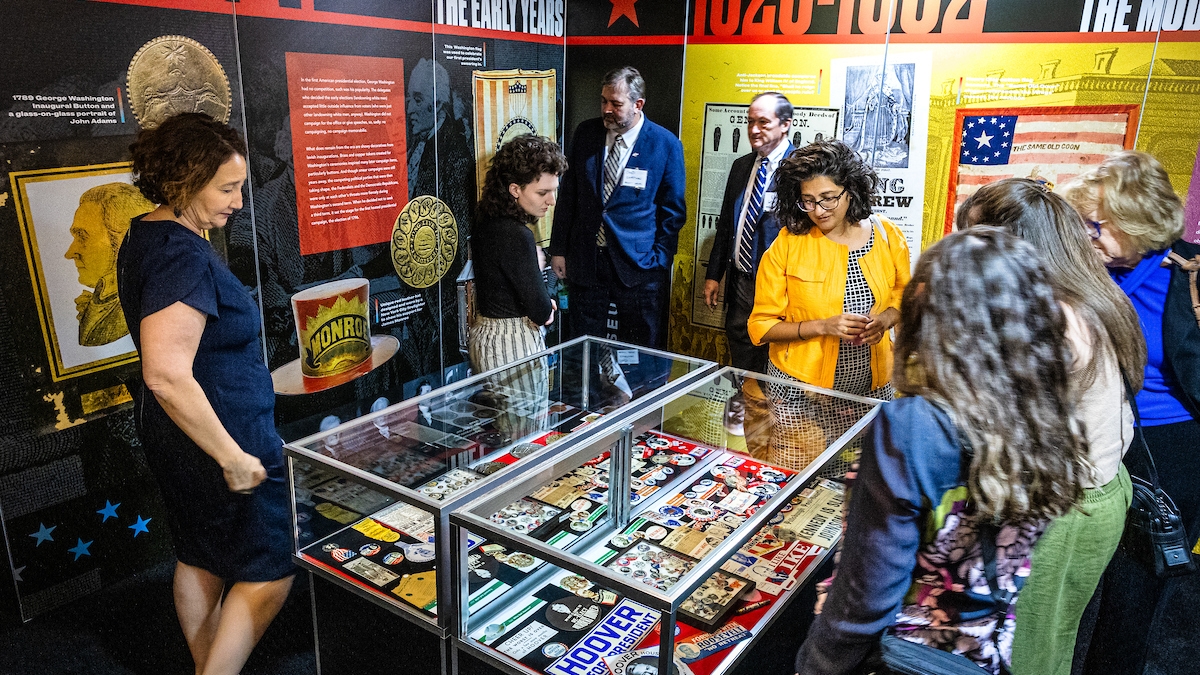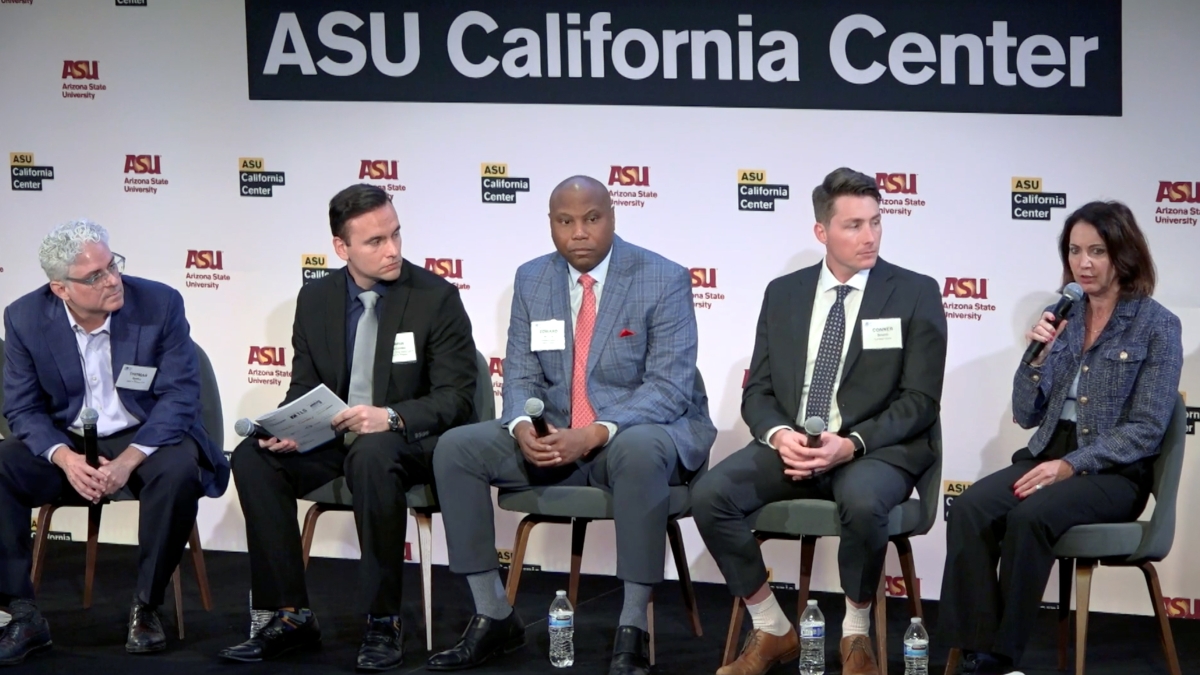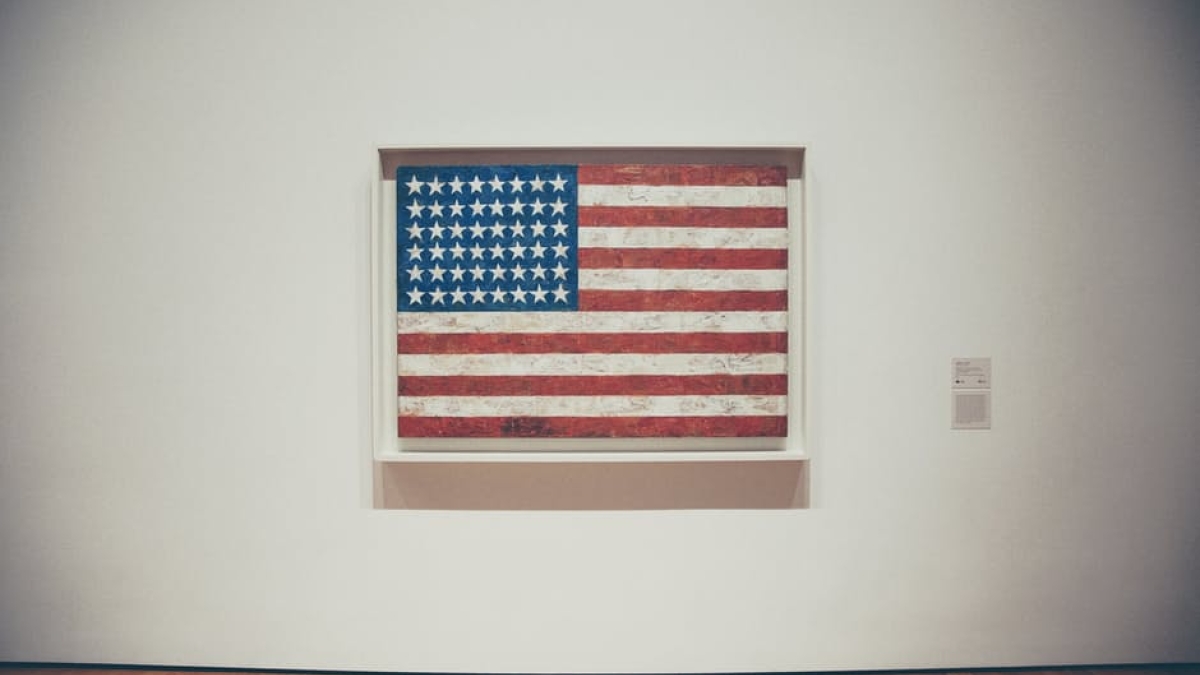Mosques across California received letters threatening genocide against Muslims this week, and although authorities say they didn’t rise to the level of hate crimes, ASU associate professor Patrick Bixby said they represent the latest example of Islamophobia in the U.S.
Anti-Muslim bias has been one of many topics in the news around which ASU associate professor Christopher Hanlon says there’s much misinformation — so he has organized an event to do something about it, leveraging the expertise of campus experts on religious freedom, immigration, climate change, abortion, women’s rights and the Dakota Access Pipeline.
Hanlon’s “teach-in” starts at 11 a.m. Thursday on Fletcher Lawn at the West campus. It will feature presentations from associate professor of English Patrick Bixby and other faculty from ASU's New College of Interdisciplinary Arts and Sciences. The event is free and open to the public, and Hanlon hopes “students take away a renewed sense of curiosity about what is real and what is not real, and a heightened sense that not all the information circulating in the public sphere right now is authoritative and reliable.”
“And I also hope they take away a sense of agency, a sense that as citizens, we’re obliged to engage and inform ourselves so that we can help to steer our society in the right direction,” said Hanlon, an associate professor of English.
Here’s a sneak peek at what some of the professors will have to say about:
Islamophobia
Although the term “Islamophobia” emerged in the early 20th century, Bixby said there is a long history of Muslim bias in Western culture, going all the way back to the Crusades.
More recently such bias could be seen in presidential campaigns that called for a ban on Muslim immigration to the U.S., as well as a register of all current Muslim U.S. citizens, he said.
Bixby, who studies post-colonialism, said that since the election, the Council on American-Islamic Relations has seen a spike in crimes against Muslims.
“I want students to consider the topic with some historical context in mind,” said Bixby, “so that they can be better informed when considering their civic activities over the next four years.”
Fake news and social media
Associate professor of social and behavioral sciences Alex Halavais specializes in social media’s place in politics and learning.
This past election cycle, fake news stories were all over Facebook, Twitter and other social media outlets.
Many pundits said the spread of misinformation played the biggest role in determining the outcome of the election. Halavais said that’s “probably hyperbole,” but fake news is definitely prevalent.
There are three reasons people need to be wary of fake news, Halavais said:
- When people make a decision based on bad information, they often make the wrong decision.
- Perpetrating false information by sharing “clickbait” stories on social media can result in real problems.
- When you pass on bad info, “it makes you look stupid,” Halavais said. “People won’t trust what you’re saying, and you end up looking credulous and gullible.”
If he could ensure students graduated with one skill, he said, “it’d be the ability to determine when information is real and when it’s fake.”
Religious liberties
In the aftermath of the Supreme Court’s decision to legalize same-sex marriage, some more conservative groups have been pushing for bills at both the state and federal level that would allow individuals who object to marriage equality based on religious grounds the right to not comply with the law.
The Arizona Senate Bill 1062 that was first introduced in 2014 was just such a bill, said Tuomas Manninen, senior lecturer of philosophy. It was ultimately vetoed, but it would have given businesses the right to claim a religious objection to providing services to customers.
“Looking at it in a more philosophic way, I would say we need to strike a balance between individual liberties and equalities for all,” Manninen said. “We need to ask if certain bills would really create equality or if they would grant privileges to one group whose interests don’t support another’s.”
Abortion access and the law
“As of 2012, the latest comprehensive info we have on abortion rates in the U.S. is that they’re the lowest they’ve ever been since abortion became legal,” said associate professor of philosophy Bertha Manninen, citing information from the Guttmacher Institute. “And 91.4 percent of abortions take place in the first trimester.”
So the idea that abortion, and specifically late-term abortions, are an epidemic in America is just wrong, she said, adding that abortion in general is a topic “that can be more mired with misinformation.”
Manninen will also be talking about what would need to happen in order for certain laws to be overturned.
“There’s a process, and there are steps that need to be taken,” she said. “You can’t just sign a piece of paper and overturn a Supreme Court decision.”
More Law, journalism and politics

Exhibit uses rare memorabilia to illustrate evolution of US presidential campaigns
After one of the most contentious elections in history, a new museum exhibit offers a historical perspective on the centuries-old American process.“We The People! Electing the American President” had…

TechTainment conference explores the crossroads of law, technology, entertainment
What protections do writers, actors, producers and others have from AI? Will changing laws around name, image and likeness (NIL) eliminate less lucrative college sports programs?And what does…

How to watch an election
Every election night, adrenaline pumps through newsrooms across the country as journalists take the pulse of democracy. We gathered three veteran reporters — each of them faculty at the Walter…
